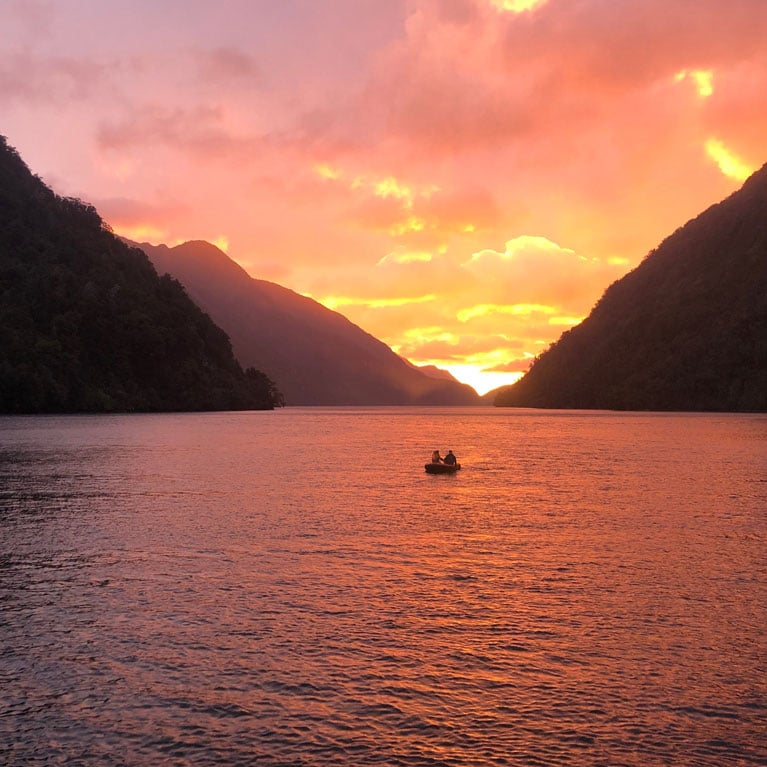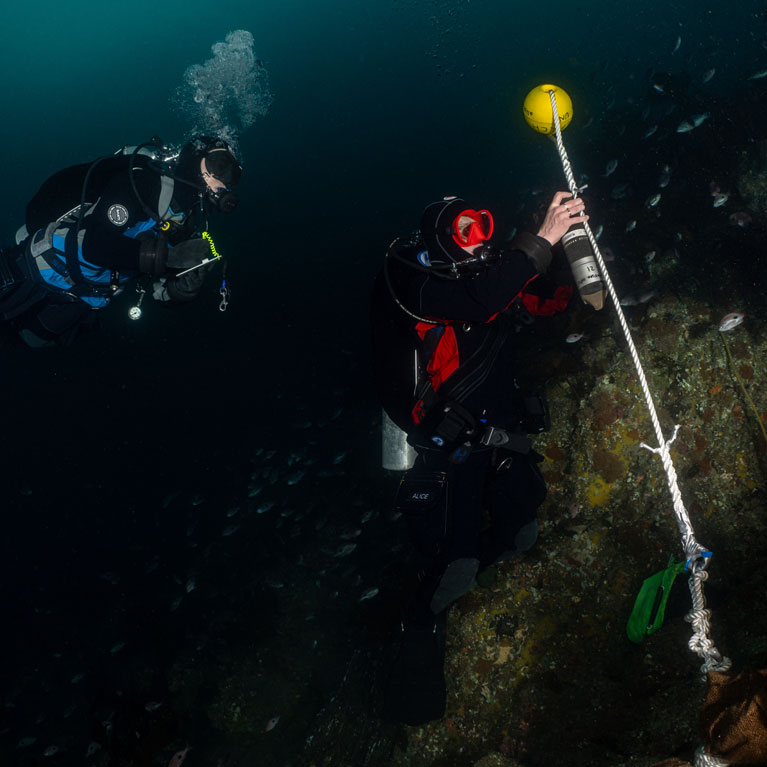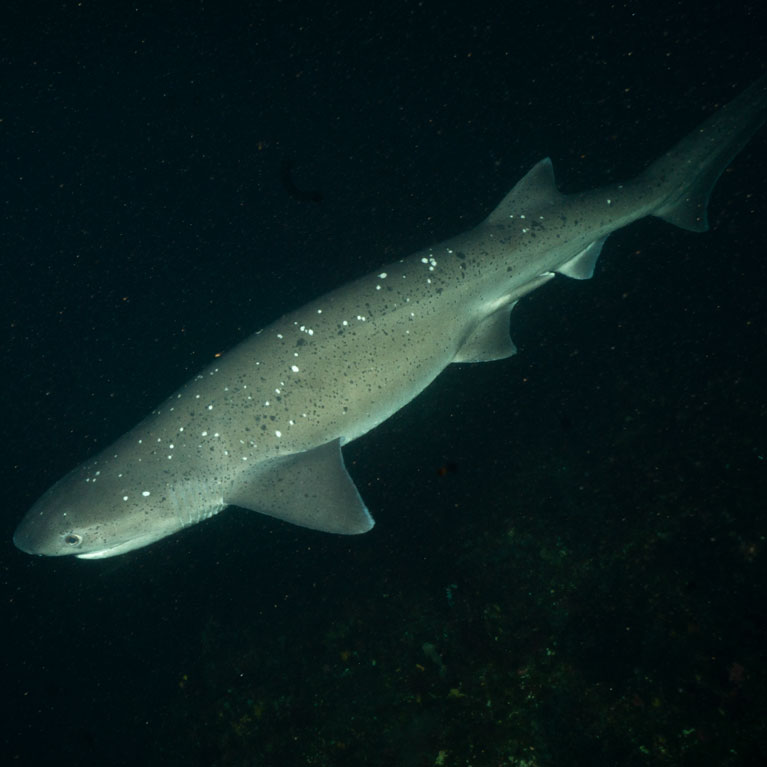Climate change at the end of the earth: sevengill sharks in Fiordland, New Zealand
Alice is asking critical questions about how a changing climate and more frequent extreme weather events are going to affect sevengill sharks in Fiordland, New Zealand. Will their movement patterns differ? Might they escape to deeper waters to avoid heat stress in the shallows? Does their behaviour change in the short term, when floods hit or droughts strike? Alice wants to know how these events affect sharks even in the most remote corners of the planet, seemingly far removed from the realities of climate change.
I grew up in central England, relatively far from the coast, but was always drawn to nature and to the sea. I studied zoology as an undergraduate at the University of Sheffield (also far from the sea) and while studying I learned to scuba dive. For the next four years I spent most of my weekends and holidays travelling up and down the country exploring the UK’s amazing wrecks and reefs. After graduating, I knew that marine biology was my future, so I spent the next couple of years gaining skills and experience, diving and volunteering in exotic...



How will climate change impact broadnose sevengill sharks in Fiordland, New Zealand?
The primary objective of this project is to understand how climate change might impact Fiordland’s sevengill sharks and how we might manage the area to ensure they survive and thrive into the future.
The broadnose sevengill shark is common in coastal waters but was recently re-assessed as Vulnerable on the IUCN Red List of Threatened Species. It relies on inshore habitats to feed and reproduce, but these places are heavily impacted by our changing climate and events like heatwaves, floods and droughts. We urgently need to understand how climate change might impact sharks like the sevengill and what we can do to ensure they survive into the future.
Top predators like sharks play important roles in their communities. They eat many other things, recycle and transport nutrients and remove sick and dying animals. Ultimately, they are responsible for the health of marine environments and losing them would have devastating effects. Shark populations have already been reduced by fishing, but little is known about how they might respond to the threat of climate change. Gradual increases in water temperature, more frequent heatwaves and more extreme weather events like floods and droughts will all prove challenging to these animals, which cannot control their body temperature like we do. Given their mobility, sharks are likely to change their behaviour and move to different places when waters warm. But exactly how different shark species will react is not known. It is important that we find this out, because changes in shark behaviour affect all the animals in an environment, and also affect how likely the sharks are to come into contact with other challenges like fishing and coastal development.
We will work in Fiordland, at the south-western corner of Aotearoa, New Zealand. It is one of the most remote places on earth and supports amazing animals above and below the water. And yet even Fiordland is experiencing the impacts of climate change, with the summer of 2022 bringing its most intense heatwave so far. The most common shark in Fiordland is the broadnose sevengill Notorynchus cepedianus. Sevengills are a fundamental part of this place, and without them it would look, feel and function very differently. Here we will assess the impacts of climate change on sevengill sharks. We will establish how they respond to changes in water temperature and salinity and use this information to improve management so that they, and others like them, have the best chance of survival into the future.
The main aim of this project is to understand how climate change and extreme weather events will influence the distribution, habitat use and behaviour of broadnose sevengill sharks in Fiordland, New Zealand. Specifically, we will ask:
- How does shark age and seasonal change in water temperature influence the horizontal and vertical movements of sevengill sharks?
- Do sevengills utilise deep water to avoid heat stress in the shallows, and how does their behaviour change in the short term during extreme weather events like floods and droughts?
- How does the abundance and availability of the animals that sevengills eat change throughout the seasons and during extreme weather events?

